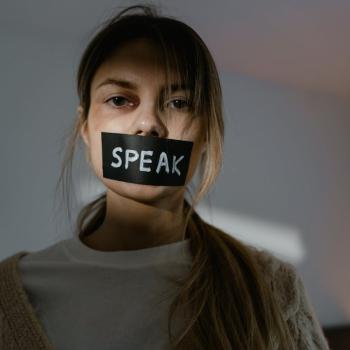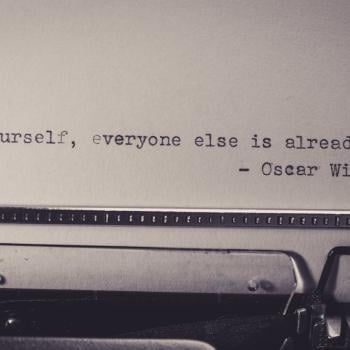Returning Home to Heal Trauma

What we are learning about trauma is not necessarily that the key person in our life didn’t prevent the harm. We all interpret what happens to us differently, and sometimes the person could not have stopped what happened even if they knew how.
In normal situations, something happens, and someone who is supposed to care for us helps us regulate those traumatic situations. They care for us, stay with us, and help us navigate through that time. They help us because we cannot, and that part of our brain develops properly.
Trauma happens when we are unable to deal with situations that happened to us and the person that we expect to help us does not act or doesn’t show up. We are unable to navigate the situation, so our brains go into survival mode.
In a way, we are stuck in that moment trying to resolve NOW problems with THEN survival techniques. In a moment, we can be triggered, and our thinking brains go offline while we revert to crude survival responses (fight, flight, freeze, or fawn).
Have you ever been in a “what just happened?” situation like that?
The Harm
Bell Hooks described how she was wounded and the effect that had on her.
“At the moment of my birth, I was looked upon with loving kindness, cherished, and made to feel wanted on this earth and in my home. To this day, I cannot remember when that feeling of love left me. I just know that one day I was no longer precious.”
Our intellectual brains want to gather information about our trauma thinking this will heal us. But information/education only enhances one part of our brain, not the traumatized part. I’m glad the plasticity is available in my brain because that is what helped me rehabilitate to some degree after my stroke. But if we want to heal our trauma, we have to connect our body with the part of the brain that had to survive when it was traumatized.
The Healing
To heal it, we have to feel it.
I have experienced this somatic healing through several different methods. When I was able to identify in my body where I felt the trauma, and I experienced that part of myself with compassion and empathy, I was able to heal and integrate that wounded part of myself. Honestly, it’s not very fun to go through this necessary process of healing. It usually involves deep weeping and leaves me exhausted, but it’s worth it.
I also recommend what some call an empathetic witness to deeply listen as you experience this process. I also recommend a trauma-informed therapist that can walk with you. The witness is a deep listener who listens to you with compassion and rarely offers advice—they simply listen. Laura and I love to do this!
The Hindrance
Depending on your background, this section may be very controversial for you. But I trust that you are inquisitive since you have read this far.
In much the same way as we look at our caregivers for the prevention of harm, we also look to our gods for the same protection. They should keep us from being hurt (thank Guardian Angel). I know that religions don’t put this in the marketing brochures, or the He Gets Us commercials, but religion could be just as traumatizing as our family and other communities. We excuse away the fact that our gods didn’t prevent the event, but we are often confused and traumatized by the fact that they didn’t respond appropriately or didn’t show up at all. We make excuses for them just like we do for neglectful caregivers.
We now know more and more every day about what causes trauma. The people who wrote our holy books and created our religions didn’t understand these things. Some religious people cannot admit that the writers did not understand their god, but they have trouble admitting that that same writer probably did not understand how to heal from trauma. There are probably bits and pieces hidden in religious practices and holy books, but most of us don’t want to wade through all of the aspects of religion that often cause more trauma to find nuggets about how to heal.
In my opinion, organized religion generally goes backward. It does not correctly address our previous trauma and often creates more by its practices. The leaders of religious organizations study theology and leadership, and rarely read survivor stories and research about what causes the harm. They trust their practices that were developed before we understood the real issues at hand.
Is there any good news? I think so.
For me, the good news was when I realized that I could take ownership of my healing. I needed others to go on the journey with me, and some of them proved to be unhelpful, but mostly that was just because they couldn’t let go of their religion to do what was necessary for the wounded sheep.
We can begin to get better if we pay attention to the survivors instead of the abusers.
We can heal if we do the hard work of returning to what Bell Hooks calls, “our first home,” where we learn to love ourselves so that we can also properly love our neighbor.
Be where you are,
Be who you are,
Be at peace,
Karl Forehand
A Treasure Trove of Trauma Resources
Unmasking Patriarchy: Diagnosing Narcissism & Abuse
Please check it out, send us your links and help address this massive issue of religious and high-control trauma! A Treasure Trove of Trauma Resources.
Our latest book that parallels our work and healing!
New Lenses – My Story – Karl Forehand

Karl Forehand is a former pastor, podcaster, and award-winning author. His books include Out into the Desert, Leaning Forward, Apparent Faith: What Fatherhood Taught Me About the Father’s Heart, The Tea Shop and Being: A Journey Toward Presence and Authenticity. He is the creator of The Desert Sanctuary podcast and community. He is married to his wife Laura of 35 years and has one dog named Winston. His three children are grown and are beginning to multiply! You can read more about the author here













